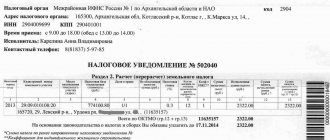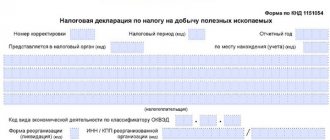1. Russian organizations, individual entrepreneurs, notaries engaged in private practice, lawyers who have established law offices, as well as separate divisions of foreign organizations in the Russian Federation, from which or as a result of relations with which the taxpayer received the income specified in paragraph 2
of this article are obliged to calculate, withhold from the taxpayer and pay the amount of tax calculated in accordance with
Article 225
of this Code, taking into account the specifics provided for by this article. Tax on the income of lawyers is calculated, withheld and paid by bar associations, law offices and legal advice centers.
(as amended by Federal Laws dated December 29, 2000 N 166-FZ
, dated December 31, 2002
N 187-FZ
, dated July 27,
N 137-FZ
, dated July 24, 2007
N 216-FZ
, dated November 23, 2020
N 372-FZ
)
Mentioned in paragraph one
of this paragraph, persons are referred to in this chapter as tax agents.
(as amended by the Federal Law
dated July 27, 2006 N 137-FZ)
Unless otherwise provided in paragraph 2
or
the second paragraph of paragraph 6 of Article 226.1
of this Code, Russian organizations and individual entrepreneurs who make payments under agreements for the purchase and sale (exchange) of securities concluded by them with taxpayers are also recognized as tax agents.
(paragraph introduced by Federal Law
dated September 29, 2019 N 325-FZ;
in ed. Federal Law
of November 23, 2020 N 374-FZ)
When determining the tax base for transactions with securities based on a taxpayer’s application, the tax agents specified in this paragraph take into account actual and documented expenses that are associated with the acquisition and storage of the relevant securities and that the taxpayer incurred without the participation of a tax agent.
(paragraph introduced by Federal Law
dated September 29, 2019 N 325-FZ)
As documentary evidence of the relevant expenses, an individual must submit originals or duly certified copies of documents on the basis of which this individual made the relevant expenses, brokerage reports, documents confirming the fact of transfer of rights to the relevant securities to the taxpayer, the fact and amount of payment of the relevant expenses . If an individual submits original documents, the tax agent is obliged to make certified copies of such documents and store them for five years.
(paragraph introduced by Federal Law
dated September 29, 2019 N 325-FZ)
2. Calculation of amounts and payment of tax in accordance with this article are carried out in relation to all income of the taxpayer, the source of which is a tax agent, with offset of previously withheld tax amounts (except for income in respect of which tax amounts are calculated in accordance with Article 214.7
of this Code), and in cases and in the manner provided for in
Article 227.1
of this Code, also taking into account the reduction by the amount of fixed advance payments paid by the taxpayer.
Peculiarities of calculation and (or) payment of tax on certain types of income are established by Articles 214.3
,
214.4
,
214.5
,
214.6
,
214.7
,
226.1
,
227
and
228
of this Code.
(Clause 2 of the Federal Law
dated November 27, 2017 N 354-FZ)
3. Tax amounts are calculated by tax agents on the date of actual receipt of income, determined in accordance with Article 223
of this Code, on a cumulative basis from the beginning
of the tax period
in relation to all income in respect of which the tax rate established by
paragraph 1
or 3.1 of Article 224 of this Code is applied, accrued to the taxpayer for a given period, with the offset of the tax amount withheld in previous months of the current tax period.
(as amended by Federal Laws dated May 2, 2015 N 113-FZ
, dated November 27, 2017
N 354-FZ
, dated November 23, 2020
N 372-FZ
)
The amount of tax applied to income for which other rules
tax rates are calculated by the tax agent separately for each amount of specified income accrued to the taxpayer.
(as amended by Federal Laws dated May 2, 2015 N 113-FZ
, dated November 23, 2020
N 372-FZ
)
The tax amount is calculated without taking into account the income received by the taxpayer from other tax agents and the tax amounts withheld by other tax agents.
4. Tax agents are required to withhold the accrued amount of tax directly from the taxpayer’s income upon their actual payment, taking into account the specifics established by this paragraph.
(as amended by the Federal Law
dated 02.05.2015 N 113-FZ)
When paying the taxpayer income in kind
or the taxpayer receives income in the form of
material benefit,
the calculated amount of tax is withheld by the tax agent at the expense of any income paid by the tax agent to the taxpayer in cash. In this case, the withheld tax amount cannot exceed 50 percent of the amount of income paid in cash.
(as amended by the Federal Law
dated 02.05.2015 N 113-FZ)
The provisions of this paragraph do not apply to tax agents that are credit organizations with regard to the withholding and payment of tax amounts on income received by clients of these credit organizations (except for clients who are employees of these credit organizations) in the form of material benefits determined in accordance with subparagraphs 1
and
2 paragraphs 1 of Article 212
of this Code.
(paragraph introduced by Federal Law
dated July 19, 2009 N 202-FZ)
5. If it is impossible to withhold the calculated amount of tax from the taxpayer during the tax period, the tax agent is obliged, no later than March 1 of the year following the expired tax period in which the relevant circumstances arose, to notify the taxpayer and the tax authority at the place of his registration in writing about the impossibility of withholding tax, the amount of income from which tax is not withheld, and the amount of tax not withheld.
(as amended by the Federal Law
dated 02.05.2015 N 113-FZ)
The form of notification about the impossibility of withholding tax, the amount of income from which tax was not withheld, and the amount of unwithheld tax, as well as the procedure for submitting it to the tax authority, are approved by the federal executive body authorized for control and supervision in the field of taxes and fees.
(as amended by the Federal Law
dated 02.05.2015 N 113-FZ)
Tax agents are Russian organizations with separate divisions, organizations classified as the largest taxpayers, individual entrepreneurs who are registered with the tax authority at the place of activity in connection with the application of the taxation system in the form of a single tax on imputed income for certain types of activities and (or) patent taxation system, report the amounts of income from which tax is not withheld and the amount of tax not withheld in a manner similar to the procedure provided for in paragraph 2 of Article 230
of this Code.
(paragraph introduced by Federal Law
dated 02.05.2015 N 113-FZ)
(Clause 5 as amended by the Federal Law
dated July 19, 2009 N 202-FZ (as amended on December 27, 2009))
6. Tax agents are required to transfer the amounts of calculated and withheld tax no later than the day following the day of payment of income to the taxpayer.
When paying a taxpayer income in the form of temporary disability benefits (including benefits for caring for a sick child) and in the form of vacation pay, tax agents are required to transfer the amounts of calculated and withheld tax no later than the last day of the month in which such payments were made.
(Clause 6 as amended by the Federal Law
dated 02.05.2015 N 113-FZ)
7. The amount of tax calculated at the tax rate specified in paragraph 1
or 3.1 of Article 224 of this Code, and withheld by the tax agent from the taxpayer, in respect of whom it is recognized as a source of income, is paid to the budget in the following order:
(as amended by the Federal Law
dated November 23, 2020 N 372-FZ)
if at the time of payment of the tax to the budget, the amount of tax calculated and withheld by the tax agent from the taxpayer, calculated on an accrual basis from the beginning of the tax period, is less than 650 thousand rubles or equal to 650 thousand rubles, the tax is paid at the place of registration (place of residence) of the tax agent at the tax authority, as well as at the location of each of its separate divisions;
(as amended by the Federal Law
dated November 23, 2020 N 372-FZ)
if at the time of payment of the tax to the budget, the amount of tax calculated and withheld by the tax agent from the taxpayer, calculated on an accrual basis from the beginning of the tax period, exceeded 650 thousand rubles, the tax is paid at the place of registration (place of residence) of the tax agent with the tax authority, and also at the location of each of its separate divisions in the following order:
(paragraph introduced by Federal Law
dated November 23, 2020 N 372-FZ)
the amount of tax is paid separately in the part missing up to 650 thousand rubles, relating to the part of the tax base up to 5 million rubles inclusive;
(paragraph introduced by Federal Law
dated November 23, 2020 N 372-FZ)
the part of the tax amount exceeding 650 thousand rubles relating to the part of the tax base exceeding 5 million rubles is paid separately.
(paragraph introduced by Federal Law
dated November 23, 2020 N 372-FZ)
The amount of tax calculated at other tax rates and withheld by the tax agent from the taxpayer, in respect of whom it is recognized as a source of income, is paid to the budget at the place of registration (place of residence) of the tax agent with the tax authority, as well as at the location of each of its separate divisions.
(paragraph introduced by Federal Law
dated November 23, 2020 N 372-FZ)
The amount of tax payable to the budget at the location of a separate division of the organization is determined based on the amount of income subject to taxation accrued and paid to employees of this separate division, as well as based on the amount of income accrued and paid under civil contracts concluded with by individuals of a separate division (authorized persons of a separate division) on behalf of such an organization.
(as amended by the Federal Law
dated November 28, 2015 N 327-FZ)
Tax agents are individual entrepreneurs who are registered with the tax authority at the place of activity in connection with the application of the taxation system in the form of a single tax on imputed income for certain types of activities and (or) a patent tax system, from the income of employees are required to transfer calculated and withheld tax amounts to the budget at the place of registration in connection with the implementation of such activities.
(paragraph introduced by Federal Law
dated 02.05.2015 N 113-FZ)
Tax agents are Russian organizations specified in paragraph 1
of this article, having several separate divisions on the territory of one municipality, have the right to transfer the calculated and withheld tax amounts to the budget at the location of one of such separate divisions or at the location of the organization, if the specified organization and its separate divisions are located on the territory of one municipality education chosen by the tax agent independently, taking into account the procedure established
by paragraph 2 of Article 230
of this Code.
(paragraph introduced by Federal Law
dated September 29, 2019 N 325-FZ)
7.1. For the purposes of this chapter, tax agents are also recognized as Russian organizations that transfer amounts of allowance, salary, wages, and other remuneration (other payments) to military personnel and civilian personnel (federal civil servants and workers) of the Armed Forces of the Russian Federation.
The total amount of tax calculated and withheld by the tax agent from the specified amounts is transferred to the budget in the manner provided for in paragraph 7
of this article, without applying the provisions on the need to pay tax to the budget at the location of the separate divisions of the tax agent.
(as amended by the Federal Law
dated November 23, 2020 N 372-FZ)
(Clause 7.1 introduced by Federal Law
dated November 30, 2016 N 399-FZ)
8. The total amount of tax withheld by a tax agent from the income of individuals for whom he is recognized as a source of income, exceeding 100 rubles, is transferred to the budget in the manner prescribed by this article. If the total amount of withheld tax payable to the budget is less than 100 rubles, it is added to the amount of tax payable to the budget in the next month, but no later than December of the current year.
ConsultantPlus: note.
Clause 9 art. 226 regarding the payment of tax at the expense of the tax agent when additionally accruing (collecting) personal income tax amounts at a rate of 15% for the first quarter of 2021 does not apply in the case of the tax agent independently transferring the specified amounts before 07/01/2021 (Federal Law dated November 23, 2020 N 372- Federal Law
).
9. Payment of tax at the expense of tax agents is not allowed, except for cases of additional assessment (collection) of tax based on the results of a tax audit in accordance with this Code in the event of unlawful non-withholding (incomplete withholding) of tax by a tax agent. When concluding agreements and other transactions, it is prohibited to include tax clauses in them, according to which tax agents paying income assume obligations to bear the costs associated with paying tax for individuals.
(as amended by the Federal Law
dated September 29, 2019 N 325-FZ)
ConsultantPlus: note.
Art. 226.1 (as amended by Federal Law No. 372-FZ dated November 23, 2020) applies
in relation to income received starting from 01/01/2021.
What is the procedure for paying personal income tax?
1. The party making the payments (for example, the employer or the tenant) withholds and transfers the tax to the budget.
2. An individual pays the tax independently.
If the party making payments to an individual acts as a tax agent, and itself withholds and pays personal income tax to the budget in full, the individual does not have any additional responsibilities.
However, there are cases when an organization or individual entrepreneur making payments to an individual does not perform the functions of tax agents or for some reason was unable to withhold tax. In this case, they are obliged to inform both the tax office and the recipient of the income about this (clause 5 of Article 226 of the Tax Code of the Russian Federation). You can notify a citizen that taxes were not withheld and paid on payments made in his favor at the time in any form. A copy of the certificate submitted to the tax office indicating the amounts paid is added to the message so that the individual has an idea of what tax will need to be paid. Information about paid amounts, as well as non-withheld personal income tax amounts, is transmitted in the first month of the year (before February 1) following the reporting month.
An individual who has learned of the existence of a debt to the budget is obliged no later than April 30 of the year following the reporting period to submit a tax return in form 3-NDFL (clause 1 of Article 229 of the Tax Code of the Russian Federation). If April 30 falls on a weekend, the declaration must be submitted no later than the next working day, and the deadline for filing the declaration is not postponed if the specified date falls on a holiday. The taxpayer is obliged to submit the declaration to the tax office at his place of residence, either in person, or through a representative with a power of attorney, or by mail in a valuable letter with a list of the contents (clause 4 of Article 80 of the Tax Code of the Russian Federation).
The tax itself should be paid no later than July 15 of the year following the reporting period, having previously specified the details for its payment (clause 4 of Article 228 of the Tax Code of the Russian Federation).
If the deadlines for submitting a declaration and paying the tax are violated, the tax office has the right to assess additional tax, as well as oblige the taxpayer to pay penalties and fines. The fine for violating the deadlines for filing a personal income tax return is levied in the amount of 5% of the unpaid tax amount for each full or partial month from the day established for its submission. The minimum amount of administrative punishment in this case is 1 thousand rubles, the maximum is 30% of the tax amount (clause 1 of Article 119 of the Tax Code of the Russian Federation). The fine for non-payment of tax can be 20% of the unpaid amount or 40% if the tax authorities prove the taxpayer’s intentional failure to fulfill his obligations. Penalties are accrued for each calendar day of delay in personal income tax payment in the amount of 1/300 of the Central Bank refinancing rate.
If the taxpayer proves that he filed a return on time, correctly calculated the amount of tax, but did not pay it on time, on the basis of Resolution of the Plenum of the Supreme Arbitration Court of the Russian Federation dated July 30, 2013 N 57, it will be possible to appeal the decision to impose a fine for non-payment of tax. In this case, tax authorities have the right to charge only penalties.
Tax rates: what types are there?
There are four main types or types of tax rates. Traditionally, based on the method of calculation, they are called regressive and progressive, firm and proportional. Let's look at each of them.
Table 1. Types of tax rates
| View | Meaning |
| Firm (or real) rates | They are established in an absolute amount for the entire tax object or unit, regardless of how large the financial base is. These rates are very simple both for control by supervisory authorities and for payment by citizens. Fixed rates are used when the object of tax payment is represented by any quantitative characteristic other than cost. The disadvantage of using fixed rates is that as inflation increases, they increase so that the state can not lose an acceptable level of tax collections. |
| Proportional rates | These are those that are expressed in a specific percentage of the tax base, regardless of its volume. They are used when cost characteristics are used as a tax (financial) base. Proportional rates are always universal, since they do not require indexation while maintaining the general tax policy inherent in the state. |
| Progressive rate | A rate that grows along with the tax (financial) base. Progressive bets are divided into simple and complex. A compound progressive rate means that the basis has several parts, and each part is taxed at its own rate. Accordingly, the rate may not be increased for all funds, but only those increased in relation to the previous taxation period. A simple progression is characterized by an increase in the rate due to an increase in the tax base for the entire total income. |
| Regressive rate | Decreases with growth of the tax (financial) base. State recourse rates are applied in the event of stimulating such growth. |
An example of a real rate would be the vehicle tax
What gifts should I pay personal income tax on?
According to Article 228 of the Tax Code of the Russian Federation, gifts made by loved ones - spouses, children, grandparents, half-siblings, adoptive parents - are not taxed. If the gift is given by the employer, then the tax is automatically calculated from the value of the gift and, in accordance with Article 24 of the Tax Code of the Russian Federation, as well as Article 226 of the Tax Code of the Russian Federation, is withheld by the donor. But if the organization has not assumed any tax obligations (which is additionally reported), then the individual who received the gift is obliged to independently calculate and pay personal income tax. Gifts worth up to 4 thousand rubles received during the tax period (year) are not subject to income tax on the basis of clause 28 of Article 217 of the Tax Code of the Russian Federation. If the value of the gift/gifts exceeds the specified amount, then the tax is calculated as follows: tax amount = (value of the gift - 4 thousand rubles), multiplied by the corresponding personal income tax rate. If the gift is made by an individual who is not a family member or close relative, personal income tax will have to be paid only if the gift is real estate, a vehicle or shares (shares, shares). There is no need to pay tax on gifts in any other form.
What deductions are legal?
When determining the amount of income tax, it is important to understand that the Tax Code of the Russian Federation regulates standard deductions that can be “discarded” when calculating personal income tax. According to Article No. 218, the basis for such a deduction may be the presence of minor children. Then the deduction for one or two heirs will be 1,400 rubles, for three or more - three thousand rubles. In the event of a divorce, one of the parents receives the right to double deductions for children, which will last until they reach adulthood or a limit of 350 thousand rubles.
Article 218. Standard tax deductions
Child tax deduction: how to prepare documents
In the material presented, we discuss how to go through this bureaucratic procedure and use the right to receive a cash deduction for children.
The state also implies that parents of disabled children or full-time students can count on a deduction of 12 thousand rubles. If a guardian, trustee or foster parent finds himself in a similar situation, the deduction will be 6 thousand rubles.
Another deduction is included among the standard ones. The tax amount will be reduced by three thousand rubles monthly for the following payers:
- Disabled people of the Great Patriotic War.
- Disabled people of the first, second and third groups who were injured while defending (military service) the Motherland.
- Those injured during the liquidation of the disaster at the Chernobyl nuclear power plant.
- Persons involved in work on the Shelter object (1988-1990).
- Victims at the Mayak production association (1957-1961).
- Persons who, before January 31, 1963, took part in the assembly and testing of nuclear weapons.
A tax deduction of 500 rubles is due to:
- Disabled people since childhood, as well as disabled people of groups II and III.
- Heroes of the USSR and the Russian Federation.
- Awarded the Order of Glory of three degrees.
- Residents of besieged Leningrad.
- Prisoners of concentration camps.
- Persons suffering from radiation sickness or other ailments associated with radiation exposure.
- Bone marrow donors.
- To the parents and spouses of military personnel who died defending the Motherland.
- Evacuees from the Chernobyl exclusion zone.
More detailed information about the categories of citizens who are entitled to tax deductions can be obtained from Article No. 218 of the Tax Code of the Russian Federation.
How to pay personal income tax on winnings?
In case of receiving income in the form of winnings in a lottery, in a casino or on slot machines, an individual is obliged to independently file a declaration, calculate and pay personal income tax. However, if the cash prize was received in sweepstakes or bookmakers, when paying it out, the organizers of such events are required to withhold tax from the amount awarded. Otherwise, they are obliged to notify the individual about his obligation to independently pay personal income tax (clause 1 of Article 210 of the Tax Code of the Russian Federation, clause 2 of clause 2 of Article 211 of the Tax Code of the Russian Federation, clause 2 of Article 214.7 of the Tax Code of the Russian Federation, clause 1 of Article 226 of the Tax Code of the Russian Federation , paragraph 5, paragraph 1, Article 228 of the Tax Code of the Russian Federation).
Help on form 2-NDFL: tax rates
For each tax rate, its own 2-NDFL certificate must be completed. If an employee receives a salary subject to 13% tax, and also wins the lottery (the winnings are taxed at a 35% rate), Form 2-NDFL is filled out twice for him, each certificate reflects its own type of income and its taxation.
Important point! If the form indicates that an individual has Russian citizenship, it is not necessary that the payer receives the tax rate required for a resident of the country. When summing up the results of the year, it may well turn out that a citizen of a country is not its resident.
Let us remind you that a resident of the Russian Federation is considered a person who lives on its territory for at least 183 days over the next twelve months in a row. An exception is made for:
- representatives of local government bodies;
- military personnel in service;
- employees of law enforcement or government agencies;
Resident status is not lost by people making short-term trips (no more than six months in a row) related to receiving medical care or education, or work trips for the purpose of extracting hydrocarbon resources from fields in the seas.
When is personal income tax transferred from an employee’s vacation pay?
Until recently, this was a controversial issue and there were disagreements in the legal environment regarding the timing of personal income tax deductions from vacation pay. Since 2021, the situation has been settled - data has been added to Article 226 of the Tax Code of the Russian Federation, clarifying the position of paragraph 6. Article 226 of the Tax Code of the Russian Federation with comments for 2021 implies that the amount of tax on such personal income. persons, as vacation pay, must be transferred by the tax agent no later than the last day of the month in which these vacation pay were paid. Previously, there was a different opinion, supported by many court decisions. It was believed that the tax should be transferred no later than the day when the employee (or authorized representatives in his place) actually received the amount of vacation pay into his account. However, cassation courts quite often came to a conclusion that is now enshrined in law. They established that the tax should be transferred on the last day of the month in which the payment of vacation pay was made. In their decisions, the judges indicated that vacation pay is equal to the employee’s salary, and therefore the transfer and deduction of personal income tax from the amount of vacation pay should occur in the same way as from salary - on the last day of the month (clause 2 of Article 223 of the Tax Code of the Russian Federation). Turning to Article 226 of the Tax Code of the Russian Federation with comments for 2021, one can now see the legislative consolidation of this position. So, when paying sick leave and vacation pay to employees in 2021, employers transfer personal income tax no later than the last day of the month in which these payments were made.
Legal documents regulating the application of personal income tax
The documents regulating the application of personal income tax are presented in the following list:
| Code name | Article | Description |
| tax code | 207 | The article defines who the tax payers are |
| 208 | The article defines the types of income that are subject to the taxation system | |
| 209 – 214 | The articles provide a definition of the tax base and the features of its calculation in different situations. For example, as income not received in cash. | |
| 215 | The article regulates the specifics of determining income received by foreign citizens on the territory of our country | |
| 216 | The article regulates the tax period for this tax | |
| 217 | The article regulates income that is not subject to the tax system | |
| 218 – 221 | The article provides descriptions of tax deductions applicable for a given tax regime | |
| 224 | Article establishing tax rates | |
| 227 | The article regulates the application and procedure for payment of fixed advance payments | |
| 231 | The article establishes the procedure for collecting and refunding taxes |
When is personal income tax transferred if the salary is paid in installments in the form of an advance and payment?
It is legally recognized that the date of receipt of income in the form of wages is the last day of the working month (Article 223 of the Tax Code of the Russian Federation). But Article 226 of the Tax Code of the Russian Federation with comments 2021 contains an indication that tax agents transfer the amounts of personal income tax withheld from the employee’s income no later than the date following the day of payment. Recently, the legislator clarified that when paying vacations and paying disability benefits, tax is deducted on the last day of the month in which the payments were made. According to official opinion, if the salary is paid in installments, then the tax is withheld and transferred to the budget once - when calculated at the end of the month, while observing the rules of Article 226 of the Tax Code of the Russian Federation. Therefore, until the end of the working month, income in the form of an advance is not recognized as received. When withholding personal income tax, the advance amount is included in the monthly wages made at the end of the working month, and the tax on this amount is paid on the day of final payment. This position is not controversial. It is shared by the Ministry of Finance, the Tax Service, judges and experts.
Advance payment for personal income tax
For foreign citizens who arrived in our country to earn income, there is a special regime for paying personal income tax. Such citizens usually do not need a visa, since there is a special visa-free regime between our country and theirs. Therefore, to work, they only need to register with the migration service for legal stay in the territory of our country and acquire a special patent giving the right to official employment or start an activity.
This special regime represents a fixed advance payment system. The amount is one thousand two hundred rubles per month throughout the entire period of validity of the patent. The taxpayer pays an advance at the place of business on the basis of an existing patent. The advance amount is indexed to the deflator coefficient approved by the Ministry of Finance for the reporting period, as well as to coefficients approved by regional authorities taking into account the situation on the local labor market.
When can the functions of a tax agent be assigned to a trustee?
According to the Civil Code of the Russian Federation, property can be transferred to trust management, which does not entail the transfer of ownership of it to the manager. But such a manager makes transactions with this property on his own behalf. If physical a person, for example, decides to conclude a deposit agreement not personally, but through a trustee, then the manager concludes the agreement on his own behalf, albeit at the expense of the trustor’s money. Since the agreement with the bank was not concluded by an individual. person, then the income from the deposit agreement is an individual. the person does not receive. In this case, the citizen receives income from trust management, and not from a bank deposit. According to paragraph 1 of Article 226 of the Tax Code of the Russian Federation, an organization from interaction with which a citizen-taxpayer received income can be recognized as a tax agent. Since a citizen entered into a trust management agreement and received income from interaction with the manager, then, falling under the definition, the trustee can be recognized as a tax agent. The individual will be the recipient of income under the deposit agreement concluded by the trustee. Personal income tax on this income will be withheld when the money is paid to the individual by the trustee.
Regulated personal income tax rates
The personal income tax rates are:
| Bet amount,% | Explanation |
| 9% | This rate has been abolished since 2015, but is also applied to income received from equity participation in an organization (dividends) before 2015. |
| 13% | The standard rate applied to the income of tax residents, unless otherwise provided by law. Such income includes wages or other income from the labor activity of an individual. |
| 15% | The rate is applicable to citizens who are not tax residents who receive income from equity participation in organizations registered in our country. |
| 30% | The rate is applicable for citizens who are not tax residents receiving income in our country |
| 35% | The maximum rate that is applied to certain types of income when their value exceeds the maximum established by law: – Winning; – Interest on deposits, etc. |
If there was a mistake
If the reason for the untimely transfer of personal income tax to the budget was an error made when preparing a payment order, which occurs quite often, a reconciliation with the tax authorities is carried out. In addition, you can submit a statement of error to the tax office, attaching documents that certify the transfer of tax, ask to clarify the relevant indicators and reconcile payments. After the reconciliation, tax inspectors make a decision to clarify the payment and recalculate the penalties accrued on the tax amount.
Income in the form of dividends from equity participation in the organization
The organization also acts as a tax agent for the collection and payment of personal income tax in the case of transfer of dividends accrued in favor of the entrepreneur (clause 3 of Article 214 of the Tax Code of the Russian Federation). Moreover, this rule must be followed even if the individual entrepreneur uses the taxation system in the form of the simplified tax system.
For more information about calculating taxes on dividends paid by organizations, read our article “How to correctly calculate the tax on dividends?”
We remind you: the tax rate on income received by domestic entrepreneurs in the form of dividends is 13% (Article 224 of the Tax Code of the Russian Federation).
Tax card
In addition to the obligation to calculate, withhold and pay personal income tax, the law imposes on the tax agent - individual entrepreneur the obligation to keep records of income paid to individuals. In this case, an entrepreneur can use tax card 1-NDFL, which contains information for each individual taxpayer, or develop his own accounting form.
In addition, the law allows tax cards to be kept on paper and magnetic media, provided that the electronic information recorded on them can be printed. The Tax Code of the Russian Federation does not directly indicate the existence of liability for the lack of such records, however, during tax audits, documents containing information about taxpayers may be requested by the inspector. But failure to submit accounting cards within the prescribed period is grounds for the imposition of penalties in the amount of fifty rubles for each unsubmitted document.
Income of individual entrepreneurs under a brokerage service agreement
If an organization is a professional participant in the securities market and pays income to an entrepreneur under an agreement for brokerage services, trust management of securities and other similar agreements, then in accordance with Art. 214.1 of the Tax Code of the Russian Federation, she is a tax agent, regardless of the status of an individual and the taxation system applied by the individual entrepreneur.
This position is confirmed by letters of the Ministry of Finance of Russia dated March 19, 2010 No. 03-04-06/2-40, dated August 16, 2007 No. 03-04-06-01/291.
The tax is calculated using the rate provided for in Art. 224 Tax Code of the Russian Federation.
See here for details.
Is it possible to conclude an employment contract with an individual entrepreneur?
As for the formalization of relations between the organization and the individual entrepreneur in the form of an employment contract, in this case Art. 20 of the Labor Code of the Russian Federation provides for the relationship between 2 parties:
- employer, which can be an organization, an entrepreneur, or an individual;
- employee, who can only be an individual.
That is, an employee cannot participate in labor relations as an entrepreneur, he can only act as an individual. Therefore, if an organization has concluded an employment contract with an individual who has the status of an entrepreneur, then in relation to income paid under such an agreement, the organization will be a tax agent. And she must herself make deductions, transfers, and also report to the budget for personal income tax on income received by an individual entrepreneur under an employment contract (letter of the Ministry of Finance of Russia dated October 3, 2008 No. 03-04-06-01/288, resolution of the Federal Antimonopoly Service of the Central District dated 05/06/2005 No. A14-10155/2003/340/24).
In order to avoid mistakes when registering labor relations between an employer and an employee, we advise you to read our article “The procedure for concluding an employment contract (nuances).”







